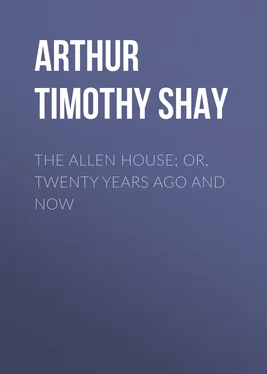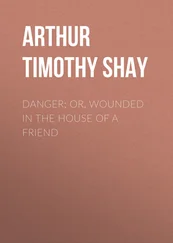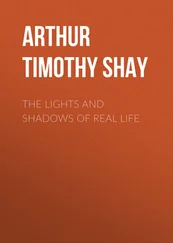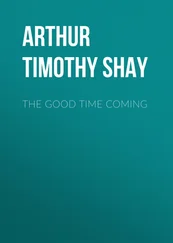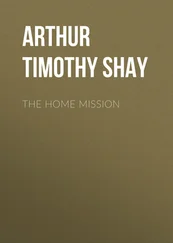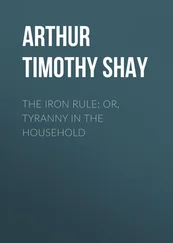Timothy Arthur - The Allen House; Or, Twenty Years Ago and Now
Здесь есть возможность читать онлайн «Timothy Arthur - The Allen House; Or, Twenty Years Ago and Now» — ознакомительный отрывок электронной книги совершенно бесплатно, а после прочтения отрывка купить полную версию. В некоторых случаях можно слушать аудио, скачать через торрент в формате fb2 и присутствует краткое содержание. Жанр: foreign_sf, literature_19, foreign_antique, foreign_prose, на английском языке. Описание произведения, (предисловие) а так же отзывы посетителей доступны на портале библиотеки ЛибКат.
- Название:The Allen House; Or, Twenty Years Ago and Now
- Автор:
- Жанр:
- Год:неизвестен
- ISBN:нет данных
- Рейтинг книги:3 / 5. Голосов: 1
-
Избранное:Добавить в избранное
- Отзывы:
-
Ваша оценка:
- 60
- 1
- 2
- 3
- 4
- 5
The Allen House; Or, Twenty Years Ago and Now: краткое содержание, описание и аннотация
Предлагаем к чтению аннотацию, описание, краткое содержание или предисловие (зависит от того, что написал сам автор книги «The Allen House; Or, Twenty Years Ago and Now»). Если вы не нашли необходимую информацию о книге — напишите в комментариях, мы постараемся отыскать её.
The Allen House; Or, Twenty Years Ago and Now — читать онлайн ознакомительный отрывок
Ниже представлен текст книги, разбитый по страницам. Система сохранения места последней прочитанной страницы, позволяет с удобством читать онлайн бесплатно книгу «The Allen House; Or, Twenty Years Ago and Now», без необходимости каждый раз заново искать на чём Вы остановились. Поставьте закладку, и сможете в любой момент перейти на страницу, на которой закончили чтение.
Интервал:
Закладка:
“How long have you been in this town, Mr. Adams?” The question seemed indifferently asked; but the landlord’s ear did not fail to perceive in the tone in which it was given, a foreshadowing of much beyond.
“I was born here,” he replied.
“Ah! Then you know all the people, I imagine?”
“I know all their faces, at least.”
“And their histories and characters?”
“Perhaps.”
Something in this “perhaps,” and the tone in which it was uttered, seemed not to strike the questioner agreeably. He bent his brows a little, and looked more narrowly at the landlord.
“I did not see much of your town as I came in this evening. How large is it?”
“Middling good size, sir, for an inland town,” was the not very satisfactory answer.
“What is the population?”
“Well, I don’t know—can’t just say to a certainty.”
“Two thousand?”
“Laws! no sir! Not over one, if that.”
“About a thousand, then?”
“Maybe a thousand, and maybe not more than six or seven hundred.”
“Call it seven hundred, then,” said the traveler, evidently a little amused.
“And that will, in my view, be calling it enough.”
There was a pause. The traveler seemed in doubt as to whether he should go on with his queries.
“Not much trade here, I presume?” He asked, at length.
“Not much to boast of,” said Adams.
Another pause.
“Any well-to-do people? Gentlemen who live on their means?”
“Yes; there’s Aaron Thompson. He’s rich, I guess. But you can’t measure a snake ‘till he’s dead, as they say.”
“True,” said the traveler, seeming to fall into the landlord’s mood. “Executors often change the public estimate of a man as to this world’s goods. So, Aaron Thompson is one of your rich men?”
“Yes, and there’s Abel Reeder—a close-fisted old dog, but wealthy as a Jew, and no mistake. Then there is Captain Allen.”
A flash of interest went over the stranger’s face, which was turned at once from the light.
“Captain Allen! And what of him?” The voice was pitched to a lower tone; but there was no appearance of special curiosity.
“A great deal of him.” The landlord put on a knowing look.
“Is he a sea captain?”
“Yes;” and lowering his voice, “something else besides, if we are to credit people who pretend to know.”
“Ah! but you speak in riddles, Mr. Adams. What do you mean by something more?”
“Why, the fact is, Mr. Willoughby, they do say, that he got his money in a backhanded sort of fashion.”
“By gambling?”
“No, sir! By piracy!”
Col. Willoughby gave a real or affected start.
“A grave charge that, sir.” He looked steadily at the landlord. “And one that should not be lightly made.”
“I only report the common talk.”
“If such talk should reach the ears of Captain Allen?” suggested the stranger.
“No great likelihood of its doing so, for I reckon there’s no man in S–bold enough to say ‘pirate’ to his face.”
“What kind of a man is he?”
“A bad specimen in every way.”
“He’s no favorite of yours, I see?”
“I have no personal cause of dislike. We never had many words together,” said the landlord. “But he’s a man that you want to get as far away from as possible. There are men, you know, who kind of draw you towards them, as if they were made of loadstone; and others that seem to push you off. Captain Allen is one of the latter kind.”
“What sort of a looking man is he?”
“Short; thick-set; heavily built, as to body. A full, coarse face; dark leathery skin; and eyes that are a match for the Evil One’s. There is a deep scar across his left forehead, running past the outer corner of his eye, and ending against the cheek bone. The lower lid of this eye is drawn down, and the inside turned out, showing its deep red lining. There is another scar on his chin. Two fingers are gone from his left hand, and his right hand has suffered violence.”
“He has evidently seen hard service,” remarked the stranger, and in a voice that showed him to be suppressing, as best he could, all signs of interest in the landlord’s communication.
“There’s no mistake about that; and if you could only see him, my word for it, you would fall into the common belief that blood lies upon his conscience.”
“I shall certainly put myself in the way of seeing him, after the spur you have just given to my curiosity,” said Col. Willoughby, in a decided manner, as if he had an interest in the man beyond what the landlord’s communication had excited.
“Then you will have to remain here something more than a week, I’m thinking,” replied the landlord.
“Why so?”
“Captain Allen isn’t at home.”
There was a sudden change in the stranger’s face that did not escape the landlord’s notice. But whether it indicated pleasure or disappointment, he could not tell; for it was at best a very equivocal expression.
“Not at home!” His voice indicated surprise.
“No, sir.”
“How long has he been absent?”
“About a month.”
“And is expected to return soon, no doubt?”
“As to that, I can’t say. Few people in this town I apprehend, can speak with certainty as to the going and coming of Captain Allen.”
“Is he often away?”
“No, sir; but oftener of late than formerly.”
“Is his absence usually of a prolonged character?”
“It is much longer than it used to be—never less than a month, and often extended to three times that period.”
Colonel Willoughby sat without further remark for some time, his eyes bent down, his brows contracted by thought, and his lips firmly drawn together.
“Thank you, my friend,” he said, at length, looking up, “for your patience in answering my idle questions. I will not detain you any longer.”
The landlord arose, and, bowing to his guest, retired from the apartment.
CHAPTER III
On the next morning Colonel Willoughby plied the landlord with a few more questions about Captain Allen, and then, inquiring the direction of his house, started out, as he said, to take a ramble through the town. He did not come back until near dinner time, and then he showed no disposition to encourage familiarity on the part of Mr. Adams. But that individual was not in the dark touching the morning whereabouts of his friend. A familiar of his, stimulated by certain good things which the landlord knew when and how to dispense, had tracked the stranger from the “White Swan” to Captain Allen’s house. After walking around it, on the outside of the enclosure once or twice, and viewing it on all sides, he had ventured, at last, through the gate, and up to the front door of the stately mansion. A servant admitted him, and the landlord’s familiar loitered around for nearly three hours before he came out. Mrs. Allen accompanied him to the door, and stood and talked with him earnestly for some time in the portico. They shook hands in parting, and Colonel Willoughby retired with a firm, slow step, and his eyes bent downwards as if his thoughts were sober, if not oppressive.
All this Mr. Adams knew; and of course, his curiosity was pitched to a high key. But, it was all in vain that he threw himself in the way of his guest, made leading remarks, and even asked if he had seen the splendid dwelling of Captain Allen. The handsome stranger held him firmly at a distance. And not only on that day and evening, but on the next day and the next. He was polite even to blandness, but suffered no approach beyond the simplest formal intercourse. Every morning he was seen going to Captain Allen’s house, where he always stayed several hours. The afternoons he spent, for the most part, in his own room.
Читать дальшеИнтервал:
Закладка:
Похожие книги на «The Allen House; Or, Twenty Years Ago and Now»
Представляем Вашему вниманию похожие книги на «The Allen House; Or, Twenty Years Ago and Now» списком для выбора. Мы отобрали схожую по названию и смыслу литературу в надежде предоставить читателям больше вариантов отыскать новые, интересные, ещё непрочитанные произведения.
Обсуждение, отзывы о книге «The Allen House; Or, Twenty Years Ago and Now» и просто собственные мнения читателей. Оставьте ваши комментарии, напишите, что Вы думаете о произведении, его смысле или главных героях. Укажите что конкретно понравилось, а что нет, и почему Вы так считаете.
